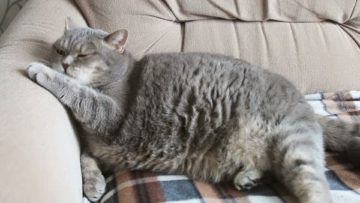 Softcat is purring over an 11 per cent gross profit leap to £196.5 million, and its gross invoiced income has clawed up a four per cent increase to £1.263 billion in its half-yearly financial fiasco up to 31 January 2024.
Softcat is purring over an 11 per cent gross profit leap to £196.5 million, and its gross invoiced income has clawed up a four per cent increase to £1.263 billion in its half-yearly financial fiasco up to 31 January 2024.
Operating profits have pounced up 5.8 per cent to £66.7 million, and Softcat’s saying it’s more than they’d hoped for.
However, the reseller’s revenue has tumbled by eight per cent – a bit of déjà vu from last October when they reported a similar 8.6 percent drop.
The bigwigs at Softcat reckon it’s all down to hardware sales hitting the skids, which make up a hefty chunk of the revenue pie, while software and some services get a trim under IFRS15.
Softcat’s top cat, Graham Charlton, said the double-digit gross profit growth is due to the mid-market, enterprise, and public sector segments.
“All parts of our customer base grew strongly. Like everyone else’s, the most challenging area of our business was client devices and networking hardware. Due to the post-pandemic supply chain issues, we couldn’t get enough client devices and networking hardware, leading to many backorders. However, this pent-up demand was suddenly fulfilled during the latter half of 2022 and into 2023.
As a result, he said that sales of networking hardware and client devices have been down, but Softcat is seeing strong demand across all other areas.
Softcat is seeing a boom in data centre solutions and security software, and even Microsoft’s Copilot AI assistant is causing quite a stir.
Meanwhile, AI has failed to deliver much more than conversation. Softcat is seeing some organisations heavily implementing Microsoft’s Copilot, but most are still evaluating and understanding it before rolling it out at scale.
Softcat is also getting some work related to AI in data centres. Certain organisations have been using proprietary AI applications for years and are now gearing up data centre capacity and capabilities.
Charlton said that while there was more demand for transitioning from CPUs to GPUs to support AI workloads, we would see AI translate into material financial performance in the coming years.
Charlton discussed the hurdles in the first half of the year, saying the macroeconomic conditions still give everyone the jitters. While this has not affected Softcat, which operates in the IT infrastructure space, some of its customers are under strain and are cautious with their spending and procurement cycles have been lengthening as a result.
Headcount has grown 15 per cent in this period, a tad slower than the 21 per cent of last year, but still hitting the company’s target – which Charlton says is usually around 10 to 15 per cent per year.





